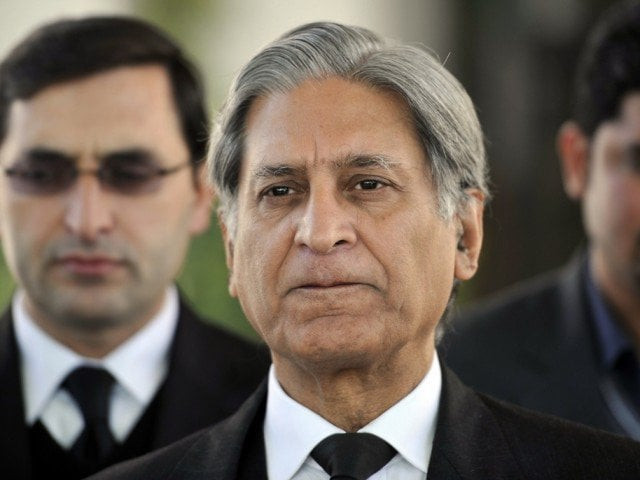PPP moves bill in Senate for leaks inquiry panel
The bill will ensure across-the-board accountability starting from Sharif family, says Aitzaz

PHOTO: FILE
The move coincided with the approval of a controversial inquiry bill by the federal cabinet which has already been rejected by the Supreme Court as well as the joint opposition.
In the bill, ‘Panama Papers Inquires Act 2016’, the opposition has sought a legal process for inquiries into the transnational and trans-jurisdictional secret transfers and deposits of vast sums of Pakistani rupees and resources by persons whose names have been disclosed in the Panama Papers.
“This new special law is designed to facilitate the state through specific provisions providing for effective transnational and trans-jurisdictional tracing and outreach to uncover all those secreted funds, assets and properties,” reads the Statement of Objects of the bill.
Inquiry commission constitution
The bill suggests the federal government shall make a reference to the chief justice of Pakistan to nominate three judges of the apex court with the senior-most judge being chairman of the commission or if the CJP himself is a member, he shall be the chairman.
The commission will have the powers to constitute a national or international joint investigation team or teams and seek cooperation from foreign countries and agencies in accordance with the UN Convention against Corruption and other related conventions and laws. It will also be able to hire services of advocates of good repute to assist in an inquiry or inquiries.
The commission will also be able to appoint a committee of experts in international forensic audit to carry out an exhaustive investigation and audit into the offshore companies and their accounts.
“It shall be critical duty of the committee to verify and report to the commission the money trail [during the period 1985 to 2016] which provided funds for such offshore companies and the consequential payments out of such funds for investments and other financial transactions,” says the proposed ToRs for the commission mentioned under Schedule of the bill.
Timeframe to conclude inquiry
The bill mentions a timeframe of three months to one year to conclude inquiry/inquiries. The commission will start its inquiry from persons and their families who have publicly admitted [like in the case of Prime Minister Nawaz Sharif] of holding offshore companies as revealed in the Panama leaks.
“Inquiries in respect of other respondents [who have been named in Panama Papers but they have not publicly admitted] shall only be commenced thereafter and be concluded in 12-month,” suggests the bill.
Immunity to no one
The commission will have powers to summon any person or authority during the course of proceedings to furnish information and documents irrespective of any privilege (immunity) available under any law to said person. “Privilege in no case shall be claimed with respect to assets already admitted through application to the commission or in a public statement by the respondent,” it adds.
It says the ToRs mentioned in the Schedule of the bill shall only be amended pursuant to a consensus between the government and the opposition in parliament.
Leader of the opposition in the Senate Aitzaz Ahsan said the bill was comprehensive and would ensure across the board accountability initiating from the prime minister and his family. Forensic audit of the money trail has been suggested, which the government has been avoiding for obvious reasons, he said.
“The Supreme Court did not take suo motu notice of the scandal contrary to its past practice where a notice was taken upon recovery of two liquor bottles,” Ahsan said, adding the Supreme Court Registrar had no jurisdiction to return the petitions of opposition parties regarding the Panama Papers.
Earlier, the federal cabinet hastily approved the controversial Commission of Inquiry Bill 2016 which was unexpectedly added to the agenda.
Initially, the cabinet’s agenda had 15 items – but two more topics were later added including the Commission of Inquiry Bill 2016.
Interestingly, the two main opposition parties – the PPP and the PTI – have already rejected the bill, stating it to be similar to the Commissions of Inquiry Act 1956. The Supreme Court also turned down a government request on May 13 to form an inquiry commission on the Panama leaks under the same law.
Defending the cabinet move, PML-N Senator Raja Zafarul Haq said the government genuinely wanted to deal with the issue and wanted to take a practical approach.
“They [opposition parties] are wasting their and the nation’s time. They do not realise that there is ‘only one’ Nawaz Sharif. The opposition is playing it foul for petty gains by making futile efforts to malign a leader of international standing and stature. This will not help,” he added.
Published in The Express Tribune, September 1st, 2016.


















COMMENTS
Comments are moderated and generally will be posted if they are on-topic and not abusive.
For more information, please see our Comments FAQ